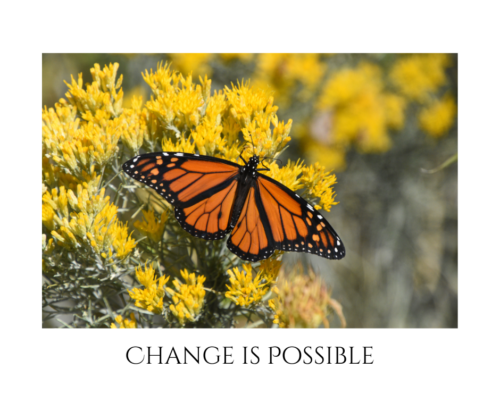Public release date 21-July, 2005
Source: BBC News by Steven Shukor
An insomniac’s quest for sleep:
Sleeping in the sticky, summer heat is trouble enough for most, but for the 10 million people in the UK affected by insomnia it is even harder. Here one woman who has struggled with sleep for years tells how she copes with sleepless nights.
It was while lying awake one night, after three days without sleep, that Anna Musgrave considered her most extreme option.
No sleep for days on end had become a bit of a routine. Usually by day three her body was so exhausted that sleep came, but not on this occasion.
She nudged her boyfriend in a discreet attempt to wake him. She could no longer bear being awake. The herbal teas, the pills, were not working. She was desperate.
“He offered to punch me out and I remember thinking that wouldn’t be such a bad idea,” she says.
Anna, 28, from Bere Ferrers, in Devon, has suffered from sleeping problems since the age of six. It is something that runs in her family and she believes it is partly down to them moving around a lot when she was young.
‘Vicious circle’
One Christmas she remembers her excitement being shattered after being told Father Christmas didn’t visit children who were not asleep by midnight.
“My main problem is anxiety around sleep, not sleep itself,” says Anna. “I have an emotional reaction to being woken up.”
It’s one of anger and desperation because she then panics she will not be able to fall asleep again. Noise, pressure at work and personal problems are the main factors which have disrupted her sleep throughout her adult life.
SLEEPING TIPS
Go to bed at the same time each night
Avoid having a TV in the bedroom
Get moderate exercise daily
Try a milky drink before bed
Avoid too much alcohol
Avoid eating or drinking a lot late at night
Try relaxing with yoga, hypnosis or listening to music
Professor David Oakley, a clinical psychologist and director of the hypnosis unit at University College London (UCL), says in such circumstances the less you sleep, the more anxious you become.
“Not managing to sleep becomes something of a habit,” he says. “It raises your anxiety and evolves into a vicious circle.”
There are more than 80 recognised sleep problems, with insomnia – the inability to get to sleep or stay asleep once you’ve dropped off – being one of the most common. An estimated 10 million people in the UK are affected by it.
Anna’s worst bout of insomnia was when she was working as an English teacher in Puebla, eastern Mexico. She describes the feeling of going days without sleep as similar to a hangover.
“It’s horrible. I would go into auto-pilot. I was operating on nervous energy. You feel queasy. I wouldn’t feel sleepy. Your only desire is to see the day through.”
If she couldn’t fall asleep on the third night, she felt like she was going mad.
“It’s really maddening not being able to sleep when the person next to you is sleeping soundly. I would generally be wide awake, alert, really keyed up.”
Dependency
She reached for so-called “soft” sleeping aids, such as the herbal remedy Valerian, Nightol and antihistamines. But she also developed a routine aimed at relaxing herself before sleep, keeping to a regular bedtime, drinking herbal tea and reading.
But when even double doses started to lose their effect Anna turned to the cold and flu remedy Night Nurse. She developed a mild dependency on it for several years and says she would rely on it to sleep during acute periods of stress.
“I remember thinking ‘oh good I’ve got a cold coming’, I can take Night Nurse,” she says. “People who clearly didn’t suffer from insomnia looked at me as if I was a drug addict.”
Last year she decided she no longer wanted to rely on pills or Night Nurse for sleep and, like some of the millions who suffer from insomnia, decided to become “more creative” about sleep aids.
“The outside world continues to fade more and more into the background as you continue your journey into your own inner world to that unique a special part of you that only you can go to…
Extract from Glenn Harrold’s sleep hypnosis CD (Deep Sleep)
Acupuncture yielded good results at first but, as with everything else she has tried, it lost its effect before long. She turned to the web to research hypnosis, and tried hypnotherapy audio books.
Initially these have given her some satisfaction.
One CD, by hypnotherapist Glenn Harrold, consists of a carefully narrated script, gentle synthetic music, and sound effects – all attempting to relax the listener in bed.
“The aim is to slow down the listener’s thoughts and body machinery,” says Harrold, who is based in Maidstone, Kent.
Once the listener is in a relaxed state, he gives them hypnotic suggestions such as “as soon as your head touches the pillow at night, you will feel sleepy”. The listener is asked to repeat certain phrases like “I feel safe and secure at night” and “I continue to sleep well at night”.
“I get them to draw these affirmations inside of them. It has a hypnotic effect,” he says.
These suggestions are designed to become cue words for the listener, who after repeated listening, should respond to them automatically. The more you hear the book, the more effective it is.
The acid test came a few weeks ago when Anna – a charity worker – organised a week-long general assembly for Peace Brigades International. It was a high-pressure project involving long hours and little sleep, so it was essential that she slept soundly when she did get to bed.
“The effects weren’t instant because of the buzz of trying something new. But since then it has worked. The major change is how I react to being woken up.
“I wake up but I don’t have all the anxiety, anger or tension I used to feel. I just go back to sleep again. I haven’t taken Night Nurse in three months. That’s unheard of for me.”
As with everything else Anna has tried, she fears the hypnosis CD’s effects will wear off over time. But hypnotherapy may offer her future options…

